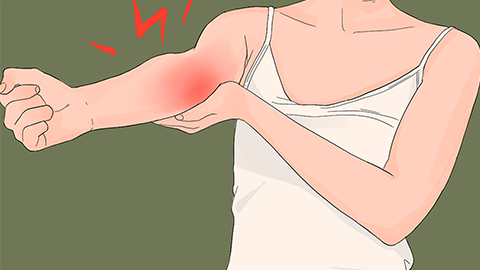What physiological reasons can cause whole-body pain?
Generally, the physiological causes of generalized body pain mainly include excessive fatigue, lack of sleep, poor posture, cold exposure, and excessive stress. If generalized body pain occurs, it is recommended to adjust lifestyle habits promptly; if symptoms persist, seek medical attention at a qualified hospital. Detailed explanations are as follows:
1. Excessive Fatigue
Long-term high-intensity physical labor or strenuous exercise keeps muscles in a constant state of tension, leading to excessive lactic acid buildup and resulting in generalized body pain. It is recommended to reduce the intensity of labor and exercise and ensure adequate rest. Heat application and massage may help relieve muscle tension and promote lactic acid metabolism. When pain is apparent, medications such as ibuprofen sustained-release capsules, acetaminophen tablets, or diclofenac sodium enteric-coated tablets can be used under medical guidance to alleviate pain symptoms.
2. Lack of Sleep
Chronic insufficient sleep duration or poor sleep quality can lead to metabolic disturbances in the body, impairing normal muscle repair and causing imbalances in nerve regulation, which may result in generalized body pain. Maintaining a regular sleep schedule and ensuring 7–8 hours of sleep daily is recommended. Avoid using electronic devices before bedtime and create a quiet and comfortable sleeping environment. If sleep problems are severe, medications such as zopiclone tablets, zaleplon tablets, or estazolam tablets can be used under medical guidance to improve sleep quality.

3. Poor Posture
Long-term sitting or poor postures such as slouching can cause uneven stress on the spine, joints, and surrounding muscles, leading to muscle strain and increased joint pressure, which may cause generalized body pain. It is important to adjust sitting and standing postures, keeping the spine straight. Take regular breaks during work or study to move around and relax muscles. Under medical guidance, medications such as eperisone hydrochloride tablets, chlorzoxazone tablets, or compound chlorzoxazone capsules can be used to relieve muscle spasms and reduce pain.
4. Cold Exposure
Prolonged exposure to cold environments can cause blood vessels to constrict, slowing blood circulation and reducing blood supply to muscles and joints, which may result in generalized body pain. It is important to wear warm clothing and avoid exposure to cold environments. Soaking feet in hot water or drinking warm beverages can help improve blood circulation. If pain is significant, medications such as celecoxib capsules, naproxen tablets, or etoricoxib tablets can be used under medical guidance to relieve discomfort.
5. Excessive Stress
Long-term mental stress can place the body in a state of stress response, causing the secretion of hormones such as adrenaline, which can lead to muscle tension and vasoconstriction, causing generalized body pain. Stress can be relieved through exercise, meditation, listening to music, and communicating with family and friends to release negative emotions. If stress leads to significant anxiety, medications such as sertraline hydrochloride tablets, paroxetine hydrochloride tablets, or escitalopram oxalate tablets can be used under medical guidance to regulate mood and reduce pain.
In daily life, it is important to balance work and rest, avoid excessive fatigue, maintain a regular sleep schedule, ensure good sleep quality, develop good posture habits to reduce physical strain, keep warm to avoid cold exposure, learn to regulate emotions, reduce mental stress, and regularly relax the body to maintain overall physical comfort.




